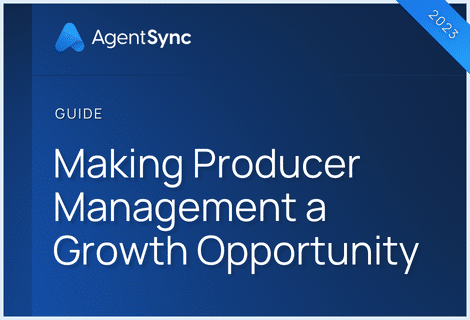


If you’ve made an effort to maintain compliance across states, you know that appointing your producers can be an expensive ordeal, and many carriers are finding that taking a proactive, blanket approach to their Massachusetts appointments is doubly so.
Let’s take a look at what it is that can make Massachusetts a costly state for appointments. But before we do, you should know that although we are compliance wonks; we aren’t your lawyers, and you are required to do your own due diligence on your appointments and other insurance matters.
Insurance carrier appointments of downstream agencies, broadly speaking
Carrier appointments – the process by which a carrier designates what producers represent them and are authorized to sell their products – are handled very differently by different states. One point of variance is in whether a carrier can appoint an agency. Some states allow carriers to appoint agencies, others don’t. Additionally, not all states agree on whether an agency appointment covers the producers who are affiliated under that agency’s umbrella, or if each agent still needs their own appointment.
For instance, Maine allows carriers to appoint business entities, but the business entity appointment doesn’t cover the affiliated producers. Idaho, however, allows all producers affiliated with a firm to write business for the carriers that have appointed the insurance firm, regardless of whether a producer holds an appointment with that carrier.
Because of these variations, carriers working across state lines often take a blanket approach aimed at providing the most compliance and protection for their organization. This approach is to appoint both the agency and the producers downstream of the agency that sell their products. This approach is often a safe one, providing some overlap on appointments but generally falling in line with most states’ appointment regulations.
However, in insurance law, there’s always an exception.
Massachusetts regulations on carrier appointments for producers
Massachusetts’s change from their in-house OPRA appointment system to using the State-Based Systems submission with the National Insurance Producer Registry has put a spotlight on their specific procedures for carrier appointments.
Under Massachusetts law, carriers can appoint producers individually, selecting each and paying the associated fee – currently $75.
Just in case you were wondering, the state holds any producer involved in the sale of a carrier’s insurance product as acting as an agent. So yes, this probably applies to you and your producers. And, to underscore the importance of understanding these appointments, if you accidentally pay for unnecessary or unintentional appointments, the state may not be predisposed to return funds.
Massachusetts regulations on carrier appointments for agencies
Massachusetts handles agency appointments differently. For an insurance carrier to appoint a downstream agency, the state maintains that all of the “members,” or what we might call “affiliations” of the agency are now authorized to sell on behalf of the carrier.
The consequences of appointing an agency then have a lot to do with how the agency has handled its affiliations. Massachusetts law requires agencies to affiliate their designated responsible licensed producer (DRLP) as a member of the agency. But the state also has the option for an agency to name other affiliated producers as members. So, agencies can only name their DRLP, or can name any or all their affiliated producers. The important thing to remember here is that, in Massachusetts, the producers an agency chooses to name as members of the agency (DRLP or otherwise) will have to be paid for as part of the agency appointment by the carrier, at a cost of $75 each.
What Massachusetts regulations mean for carrier appointments
Why does this matter to carriers? When a carrier makes an agency-level appointment, Massachusetts law maintains that the carrier must pay for all members of the agency. So, the carrier must pay the state’s $75 fee to appoint the agency, plus $75 for each member.
Taken together, these appointment laws mean carriers effectively have two ways of going about appointments. They can appoint an agency, which sometimes defaults to appointing each and every member of that agency, paying the appointment fees, and accepting that they may have paid for a bunch of producers that won’t ever sell their business. Or, they can appoint the producers individually, outside of the agency appointment.
Particularly as the Massachusetts conversion to SBS and NIPR processing makes it easier to view your appointments and compare them to other states, many carriers are realizing that, thanks to their blanket approach to state appointments, they’ve appointed many producers that don’t sell their products.
The end result: possibly thousands of dollars in unintentional appointments
On a small scale, this may not seem like a big deal. But, with each appointment costing $75, paying appointments for possibly tens or hundreds of non-producing producers is not how most carriers want to spend their money.
How agencies handle affiliations can affect costs for their carrier partners
Massachusetts law requires agencies to affiliate the DRLP alone, or affiliate all their agent force. So agencies looking to make appointments less expensive for carrier partners can intentionally only designate the DRLP as their affiliated member. This allows carriers with a “both/and” policy toward producer vs. agency affiliations to follow their nationwide appointment procedure without unintentionally appointing scads of producers who don’t intend to train for or write their business. Don’t worry: A non-affiliated producer who would like to be appointed later can ask the carrier to do so on an individual level.
Whether an agency would want to affiliate only the DRLP or affiliate the entire agent force may have to do with how they compile their book of business. Producers writing under an agency appointment in Massachusetts are writing on the agency paper; the agency owns the clients and the book of business. Producers writing on their own appointment own their book of business and are assigned commissions directly.
Who owns the book of business, and how expensive your appointment is for your carrier partners are both legitimate questions that warrant consideration before an agency decides any specific course of action.
How carriers can reduce appointment costs in Massachusetts
As we addressed before, many carriers take a blanket approach to appointments, and hopefully you can see where Massachusetts makes the case that a strategic, intentional approach is more cost-effective when it comes to state appointments. Unfortunately, many compliance and operations teams become experts in a single state or a multi-state region of regulation, and assume that the rules will more or less be similar across other states and regions.
In areas like insurance licensing, that can be the case for some of the most common lines of business – adopting NAIC model regulations and accepting reciprocity have generally made producer licensing across states a (relatively) painless process for popular lines of business. But appointments don’t follow the same pattern. There’s more nuance, and more localized regulation.
Carriers that allow room for state-by-state appointment nuance will do themselves a high-dollar favor (although trying to do it manually without a compliance management solution is still risky as all getout). Best practices for Massachusetts will depend on an agency’s relationship with its producers and book of business, and whether it affiliates the DRLP alone or whether its appointment will cover – and require the fee for – all members of the agency.
It warrants mentioning that increased pressure at the federal level regarding carrier oversight of downstream producers makes it more important than ever to limit your appointments to producers worth taking a risk on.
Next-level carrier appointment savings hack: JIT appointments
On the subject of saving money and risk in making insurance appointments, carriers that use Just-In-Time (JIT) appointments can limit both by waiting to appoint agents or agencies until they have executed the contract and submitted business.
In any state that offers JIT appointments, carriers can realize tens of thousands of dollars in savings for even a moderately sized producer force. And Massachusetts, which does allow JIT appointments, is the state that charges the highest fee per producer for appointments. So carriers that forego JIT appointments in Massachusetts in particular have a lot of money at stake.
Ultimately, carrier appointment requirements are an area where having one approach won’t work for all states. If taking a tailored approach to appointments in each state for maximum cost-effectiveness is appealing, but the tedious task of ensuring you’re following each state’s own rules isn’t, see what AgentSync can do for you.

